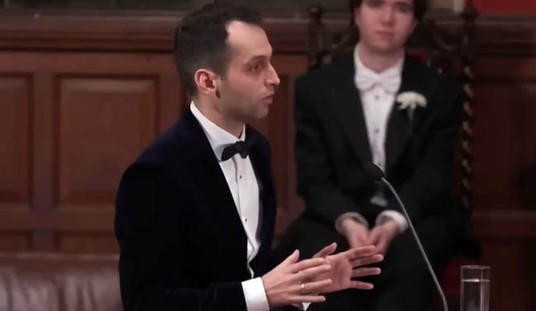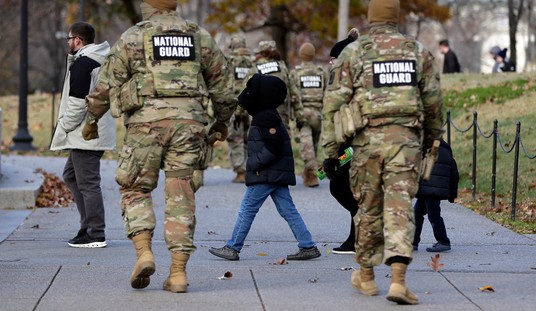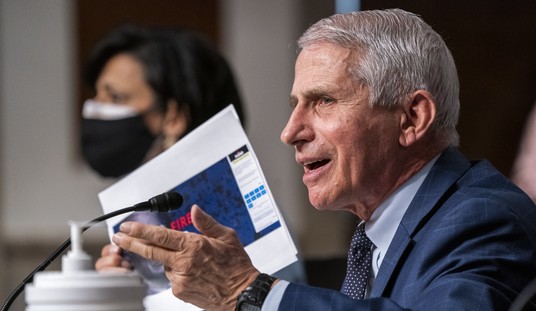The Obama administration has floated a number of trial balloons over the last couple of weeks about the idea of separating the Taliban from al-Qaeda in order to justify a reduction of resources for the counterinsurgency strategy championed for the last two years by Barack Obama himself. The argument goes that the Taliban just want to return to Afghanistan and have political engagement, and that they are different in style and intent than al-Qaeda and Osama bin Laden. In other words, they want to consider the two different movements with far less integration than previously reported as a means to open negotiations with the Taliban while ostensibly stepping up attacks on AQ.
The New York Times throws a big dash of cold water on that effort today in reporting a much closer integration of jihadist forces than previously assumed in Pakistan, and not just between the Taliban and AQ:
A wave of attacks against top security installations over the last several days demonstrated that the Taliban, Al Qaeda and militant groups once nurtured by the government are tightening an alliance aimed at bringing down the Pakistani state, government officials and analysts said. …
But the style of the attacks also revealed the closer ties between the Taliban and Al Qaeda and what are known as jihadi groups, which operate out of southern Punjab, the country’s largest province, analysts said. The cooperation has made the militant threat to Pakistan more potent and insidious than ever, they said.
The government has tolerated the Punjabi groups, including Jaish-e-Muhammad and Lashkar-e-Jhangvi, for years, and many Pakistanis consider them allies in just causes, including fighting India, the United States and Shiite Muslims. But they have become entwined with the Taliban and Al Qaeda, and have increasingly turned on the state.
The alliance has now stepped up attacks as the military prepares an assault on the Taliban stronghold of South Waziristan, where senior members of the Punjabi groups also find sanctuary and support.
The White House effort plays on a fundamental misreading of the Taliban and its place in the region. The Taliban are radical jihadists primarily comprised of Pashtuns, a major tribe in both Afghanistan and Pakistan. Their success in grabbing power gave them great credibility among the Pashtuns, and their downfall gave us an opportunity to push the Pashtuns to produce more moderate, stable leadership to integrate into an Afghanistan nationhood that they mostly don’t recognize. The effort we need to make is to separate the Pashtuns from the Taliban, not a fantasy of separating two radical and violent jihadist movements from each other.
That kind of effort will take decades, though, because we have to show the Pashtuns that (a) such a move will benefit them in terms of freedom, infrastructure, economic development, and progress without threatening their own interests, and (b) we will stick around long enough to keep the Taliban from conducting reprisals in the future. Just the mere mention of negotiating with the Taliban will make it very difficult for the Pashtuns to reject these radical, violent leaders. They will certainly be worried that any cooperation now with the US will mean a very unpleasant death for them in the future — and our backpedaling also gives a pretty good indication that the radical, violent leadership is winning the war. That will incentivize the Pashtuns to back the strong horse, not the weak one.
As the Times reports, the Taliban — all of the Taliban in both countries — are essentially the same as al-Qaeda, only with different goals in mind. The Taliban have their sights set on wresting control away from the elected governments in Pakistan and Afghanistan and reimposing the Draconian, shari’a based government that we saw in Afghanistan before 9/11. AQ wants to conduct global terror operations to force the US and other Western nations out of the Gulf area and eventually to seize control of the oil resources in Saudi Arabia so as to control world commerce. The Punjabi groups want to seize Kashmir for Pakistan. All of them are totalitarian in nature, use terror as a means to their political ends, and are incapable of any real compromise — as repeated efforts at truces from the Pakistani government have demonstrated.
If the White House continues to argue sotto voce for engagement with “moderate Taliban,” they expose dangerously naive thinking in the war on radical Islamists.









Join the conversation as a VIP Member